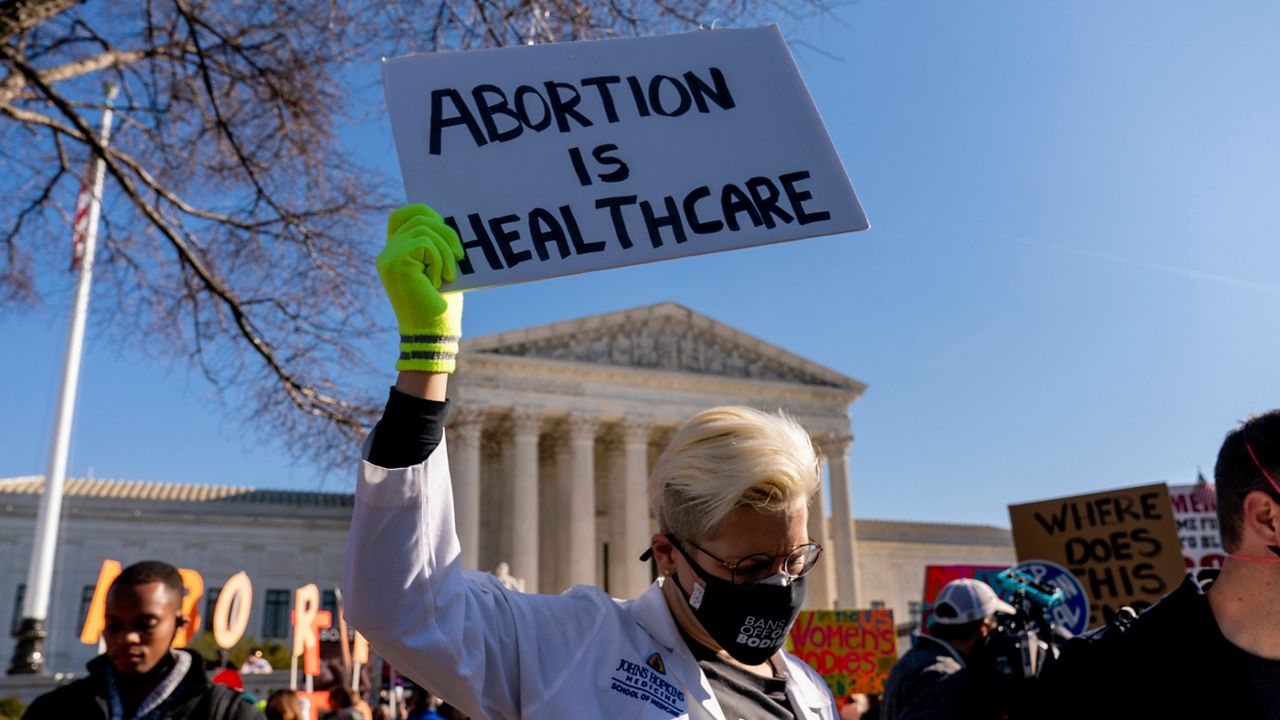The U.S. Food and Drug Administration on Thursday permanently ended a long-standing restriction on mifepristone, a pill used to terminate early-stage pregnancies, clearing the way for patients to receive the medication by mail rather than pick it up in person at a doctor's office, hospital or other medical clinic.
"After conducting a review of the single, shared system Risk Evaluation and Mitigation Strategy (REMS) for mifepristone, known as the Mifepristone REMS Program, FDA determined that the data support modification of the REMS to reduce burden on patient access and the health care delivery system and to ensure the benefits of the product outweigh the risks," the FDA wrote in a statement Thursday.
The FDA's changes consist of "removing the requirement that mifepristone be dispensed only in certain healthcare settings, specifically clinics, medical offices, and hospitals" and adds a requirement that pharmacies that dispense the drug must be certified.
The decision comes as the Supreme Court has recently heard two cases related to abortion rights, reigniting the debate over the procedure once again – and setting up a likely flashpoint in the 2022 midterm elections and beyond.
In one case, the high court ruled that abortion providers can challenge Texas' controversial six-week abortion ban – but declined to overturn the controversial law, leaving it in place.
In the other case, the Supreme Court heard arguments earlier this month in a direct challenge to Roe v. Wade. The case, Dobbs v. Jackson Women's Health Organization, calls into question the constitutionality of a 2018 state law that bans all abortions after 15 weeks of pregnancy in Mississippi, well before fetal viability. Conservative justices, including Chief Justice John Roberts, Samuel Alito and Brett Kavanaugh, seemed to suggest changes may be coming to the long-standing precedent surrounding abortion.
Earlier this the year the FDA stopped enforcing the in-person dispending requirement because of the pandemic. Under Thursday’s decision, the agency will permanently drop the rule, which has long been opposed by medical societies, including the American Medical Association, that say the restrictions offer no clear benefit to patients.
The FDA’s latest scientific review stems from a 2017 lawsuit by the American Civil Liberties Union, which argued that the agency’s restrictions block or delay medical care, especially for people in low-income and rural communities.
Physicians who prescribe the drug, mifepristone, will have to certify that they can provide emergency care to deal with its potential side effects, including excessive bleeding, FDA officials said Thursday.
The change still means many more doctors will be able to prescribe the drug and most Americans will be able to fill orders at thousands of pharmacies, including via online and mail-order services.
The effect will vary by state. More than a dozen Republican-led states have passed measures that limit access to the pills, including outlawing delivery by mail.
Increased use of mail-order about pills could pose a dilemma for the anti-abortion movement, given that its leaders generally say they don’t favor criminalizing the actions of women seeking abortions and because mail deliveries can be an elusive target for prosecutors.
Medication abortion has been available in the United States since 2000, when the FDA first approved mifepristone to terminate pregnancies up to 10 weeks. Taken with a hormone blocker called misoprostol, it constitutes the so-called abortion pill.
About 40% of all abortions in the U.S. are conducted via medication, rather than surgery, an option which has become more pivotal during the COVID-19 pandemic.
The Associated Press contributed to this report.



